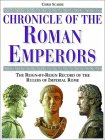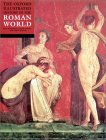|
Life
On July twentieth, 356 B.C., Olympius, the wife of King Philip the Second of Macedonia, gave birth to a son and named him Alexander. This boy eventually became known as Alexander the Great. The actual date of his birth still lies in question. Though July twentieth seems to be the most widely accepted one, that date may have been chosen to align with other important dates in Alexander's life. It is also said that on the day of his birth, the Temple of Artemis burned down, thus indicating it was a good omen for Alexander's future greatness.
Often as a child he would get discouraged when the news came home that his father had conquered and taken another territory. This was because he was worried that there would be nothing left for him to do. By the time he was thirteen, he was quite mature. This can be partly credited to the fact that he was probably around his father's army for a good portion of his childhood, most likely, he was running through the groups of soldiers ever since he could walk. Alexander's maturity is demonstrated through a famous story. His father had just bought a beautiful horse named Bucephalus. But, much to Philip's dismay, no one around could ride it. He was about to get rid of it when Alexander decided to make a wager on whether or not he could ride it. He bet thirteen talens, which was the price of the horse. This was a fairly good sum of money for a thirteen year old to have. Alexander calmly approached the horse to find that the horse was afraid of its own shadow. Facing it toward the sun to keep the shadow behind it, Alexander got on Bucephalus and rode him. Alexander got to keep the horse and later rode the same horse all the way to India. When the horse died there, Alexander founded a city and named it Bucephala after his beloved horse.
Alexander's parents wanted the best for their son, so they hired some of the finest tutors around to give him a good education. When Alexander was thirteen, he started learning from Aristotle. From him he learned the ways of the Greeks which he incorporated into his life from that point on. He found interest in other countries, philosophy, ethics, politics, plants, animals, and a wide range of other topics. Alexander also acquired a love for the works of Homer. Alexander read and learned the Iliad, taking Achilles as his role model. Once he had learned enough from Aristotle, his parents thought it was time for him to move onto a different teacher. Leonidas, who was most likely related to Olympius and possibly Alexander's uncle, was his next tutor. Leonidas was a harsh teacher and did not last all that long because Alexander did not particularly care for him. Alexander's final tutor was Lysimachus. From him he learned many cultural aspects of the world around him. He found an appreciation for fine arts such as drama, poetry and music. Lysimachus also taught Alexander how to play the lyre. By this time in Alexander's life, he was a well-rounded and very intelligent teenager.
Alexander rose to power rather quickly, and at an early age. At sixteen years of age, he was already given some large responsibilities. When his father, King Philip, left him in charge while he was away for an extended period of time, one of their colonies revolted. Alexander quickly took hold of the situation and marched troops to the area. Also by the age of sixteen he had founded his first colony and named it Alexandroupolis.
Alexander's ultimate rise to power came in June 336 when he was twenty years old. King Philip was killed at the theater. Many speculate that Alexander may have played a role in his father's death, but most likely Alexander's mother, Olympius, had more to do with it. With his father dead, Alexander became the king of Macedonia, and soon took the title of Alexander the Great. He soon showed his power when the large city of Thebes revolted in 335. He stormed the city with mighty force, taking 30,000 as slaves.
Alexander could never really be the dominate force in his area as long as the Persian ruler Darius was still living. After beating Persia the second and final time in 332, Darius had managed to survive and fled to the mountains. He died there when he was killed by one of his own noblemen, Bessus. With Darius out of the way, Alexander was crowned King of Persia in November of the same year, and became known as the king of all of Asia.
Alexander had developed into quite an individual. He was a very generous man who demonstrated extreme loyalty toward his friends, though at the same time he was very cautious and smart. Alexander also had an excellent sense of humor. Though it was simple, and almost child-like, it usually helped him win favor with his troops.
His great character and values were two of the things that made Alexander the Great a prominent individual in history. Another, of course, being that he conquered a very large amount of territory in a relatively short amount of time.
Alexander's physical accounts show that he had a strong and athletic build, but was shorter than the average Macedonian. He was fair skinned, and his clean shaven face had a ruddy tinge to it. His eyes were gray and he was said to be a very handsome man. While leading his army he would always wear something so the enemy troops could recognize him from long distances. His brightly shining armor would glisten in the sun and he wore two large white plumes in his hat to distinguish him from the other soldiers. While not in battle, the Macedonian actually wore Persian clothing, at least during his late twenties and early thirties. His silk Persian clothing consisted of a long robe, cape, sash and headband in the royal purple and white colors.
The Macedonian King loved drama, music, poetry, and wine. Alexander also liked various exercises such as hunting, ball games and running. He was said to be an Olympic quality runner, but declined to run unless he was matched up against other kings. His pride was so great that it would not allow the possibility that someone might let him win. Though he generally liked to play sports, he disliked athletic competitions.
Alexander the Great respected women, and treated them fairly. Aristotle's early teachings may have had something to do with Alexander's attitude toward women. When taking young woman captive after raiding a city, he would protect them from his troops, and treat them as if they were his daughters. Often, when addressing older queens, Alexander would refer to them as 'mother', showing his respect to them as if being a part of his close family. One of Alexander's finest acts was when he took his enemy Darius' mother and other family members when he conquered Persia: thinking that Alexander was going to kill them, Darius was much relieved to find that Alexander treated them royally and with respect as guests of his kingdom.
Along the span of his lifetime, Alexander the Great conquered many regions in a short period of time. Quite possibly his biggest military accomplishment was beating Persia the second and final time though being greatly out numbered. Of course Alexander the Great had many military accomplishments, making it through each battle alive.
Living through all these battles was another great feat since Alexander always rode in the front line of his army. In the battle against the Mallians, when an arrow pierced Alexander's lung, his troops thought that their leader was killed. They were so enraged that they ran through the city killing all in a bloody massacre. Alexander made it through with a splintered rib and a torn lung. This was not the only time Alexander was struck by an arrow; while invading Samarkand, an arrow split his leg bone making it impossible for him to ride back. The Calvary got the honor of carrying Alexander back home, but soon the infantry became jealous of their privilege. Alexander decided to let each unit take turns sharing the honor. Alexander also lived through various other serious, as well as minor, wounds and illnesses along his conquests ranging from a bird dropping a stone on his head to getting a mild case of hypothermia while crossing the Cydnus.
Along his many journeys, Alexander the Great founded many cities and colonies. Quite possibly the most famous is the one that bares his name, Alexandria. When Alexander reached Egypt, the Egyptians viewed him as their deliverer from Persian rule, and crowned him as their Pharaoh. Alexandria, which is located on the mouth of the Nile River in Egypt, was established as the center of commerce and learning.
With all these new nations under Alexander's rule, he needed to unite these nations together to keep things running smoothing. He encouraged intermarriages, and set the example by marrying a second wife, Stateira, who was Persian. He also drew soldiers from all different provinces to mix cultures within his army. A uniform currency system was also used in the region under Alexander's rule. Alexander, in a final attempt to unite his nation, chose a common religion, in which he received all worship unto himself.
Eventually, Alexander the Great started to lose some of his power. A lot of his troops wanted to go home again, but Alexander kept pushing them to conquer more, thus losing their support. In one incident, while drunk, Alexander fought and killed his friend Clitus. At this point, he lost the trust from the already unhappy troops. Not only were some of his soldiers unhappy with him, but a lot of the Macedonians started to dislike him. This was caused by his adoption of Persian ways. Though he was pulling together his vast empire, the Macedonians felt they were losing their leader. Also by accepting his promised deification after his death, he started to feel as though he was a god while he was still living. He started self-worship to help unite his varied territories with a common religion, but he took it too far with prokynesis. Prokynesis is the act of bowing before someone, and Alexander had the people of his empire do so. After all this, Alexander still retained much of his power, but it would soon be taken away from him.
On June tenth, 323, a little more than a month from his thirty-third birthday, Alexander the Great died. The actual cause of his death remains unknown, but it seems unlikely that a thirty-two year old man of his health would die of natural causes, even for his time in history. One more colorful account tells how Alexander drank a cup of wine, which was poisoned, and he started gasping and choking, and died soon after. Most likely, he died from complications of the flu, or was struck by malaria while in Babylon. At that time, though during his downfall, many soldiers still loved their leader, and they all sat around outside his tent as his condition deteriorated. The day before he died, his soldiers marched past his death bed, honoring their great leader.
They embalmed him and placed his body in a gold sarcophagus which was taken to Memphis, Egypt. Later it was transported to it's final destination, Alexandria. Unfortunately, the tomb was not left untouched. In 89 B.C., Ptolemy IX needed money, so he opened the tomb and melted down Alexander's sarcophagus to make gold coins. People were so enraged that Ptolemy would do such a thing to a legend, that Ptolemy was killed soon after.
With no successor named on his death bed, his empire went out to generals and officers who would then become governors of sections of his empire. Soon after, Alexander the Great's empire split and crumbled.
|













